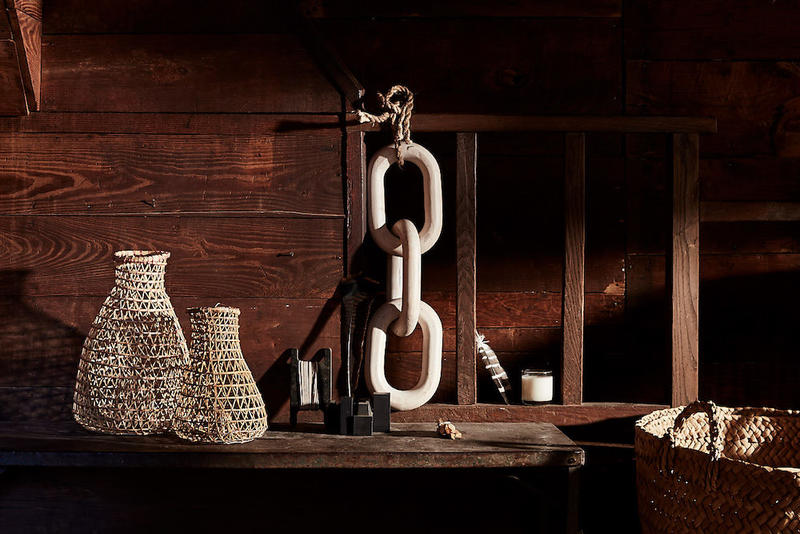An understatement: For the past decade, the internet has been a chaotic place to do business. But after 10 years of stormy weather, the sky is clearing up a bit, and while the giants are established, affordable hosting and selling technology is making it easier for new players to enter the space—call it an e-commerce spring. Into this landscape pops up Bloomist, a new, hyper-targeted site focused on artisan-made home decor inspired by the natural world.
Started by entrepreneur Michael Zung and design maven Alex Bates, Bloomist is driven by the founders’ shared love of nature and handmade craft. The two connected through a mutual friend, brainstormed the brand, developed a network of artisans, and launched late last year. Zung and Bates feel the time is right for small, focused companies with an authentic story to tell.

“E-commerce, and retail in general, is bifurcating. Either you are Amazon or Wayfair, and you offer everything under the sun for as low a price as possible, or you are a brand that develops a unique, consistent and compelling proposition,” Zung tells Business of Home. “A brand can’t just be a logo and a snappy slogan, but one that lives, breathes and emotes inspiration for their tribe members.”
Bloomist, the founders feel, makes sense for an era of overstimulation and stress. “I think people want a refuge,” says Bates. “The world is so whacked out that the home takes on a different meaning. Nature is healing and restorative—people don’t need more stuff, but they want things they connect with.”
The pair have reached far and wide to build their inventory—it includes a flower districts’ worth of dried botanicals, harvested “wooden flowers” from Guatemala, Tunisian clay beads, and elegant hand-carved wooden chains made in Honduras.
The range of the collection reflects both founders’ tastes, but Bates in particular has a deep history with artisan craft. A former creative director at both Macy’s and Martha Stewart Living, in the early aughts she was instrumental in bringing green making and artisan craft to West Elm.
 E-commerce, and retail in general, is bifurcating. Either you are Amazon or Wayfair, and you offer everything under the sun for as low a price as possible, or you are a brand that develops a unique consistent and compelling proposition.
E-commerce, and retail in general, is bifurcating. Either you are Amazon or Wayfair, and you offer everything under the sun for as low a price as possible, or you are a brand that develops a unique consistent and compelling proposition.
She attributes her interest in craft and ethical design to a road trip of sorts. “I worked on a project with Agnes Bourne, who really opened my eyes to the power of design for good. We were on the road in Canada, driving for endless hours visiting furniture factories, and she started talking about the power of ideas, the impactful role of design in every detail of our lives and the importance of giving back,” Bates says. “Her inspiration, coupled with a monthlong trip to India shortly after that road trip turned me into a full-fledged Indophile and put me on the path to wanting to focus on working with artisans.”
For now, Bloomist is focused on e-commerce with occasional pop-ups here and there. The founders are hoping to build the brand, tell their story, and connect with their tribe. A physical location might happen down the road a ways. “There’s still a thirst for a local store in the neighborhood, where people have a relationship with the shopkeeper,” Bates says. “People want experiences and stories.”
As for the broader retail landscape? The sky, Bates says, isn’t falling: “Everyone is dressing in black and saying retail is dead. It’s not dead, it’s just changing.”




























